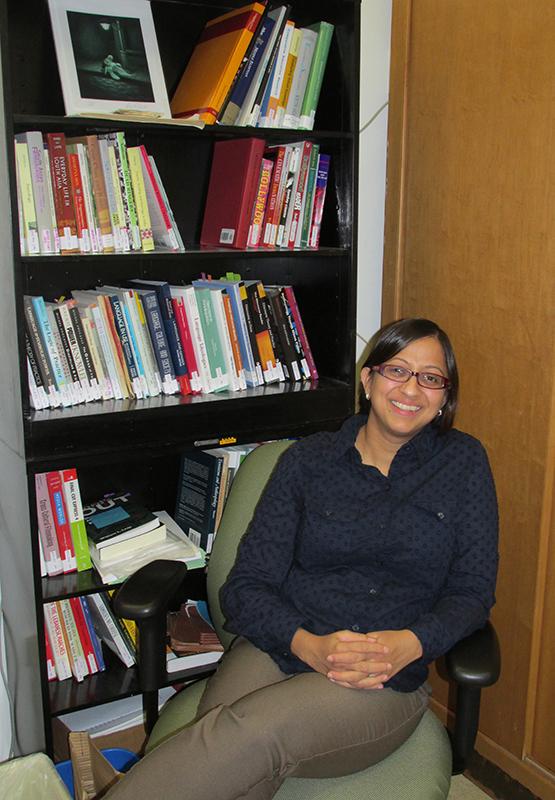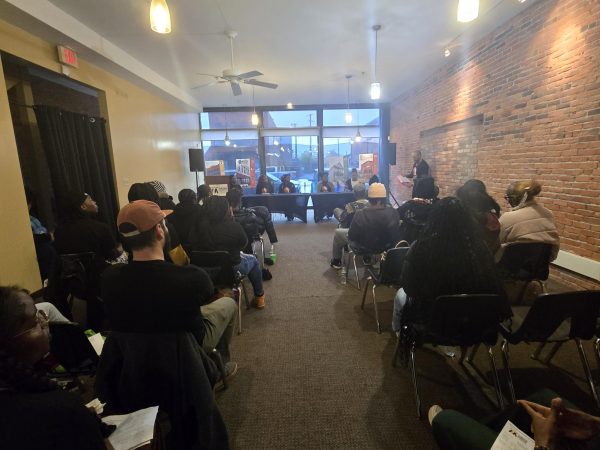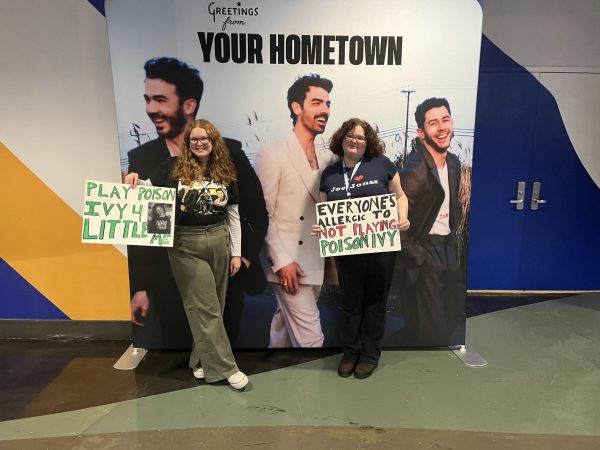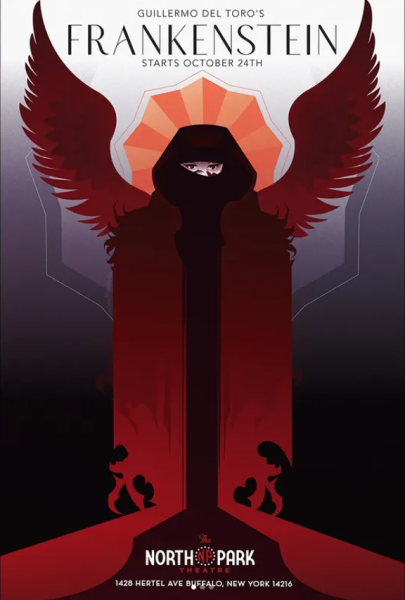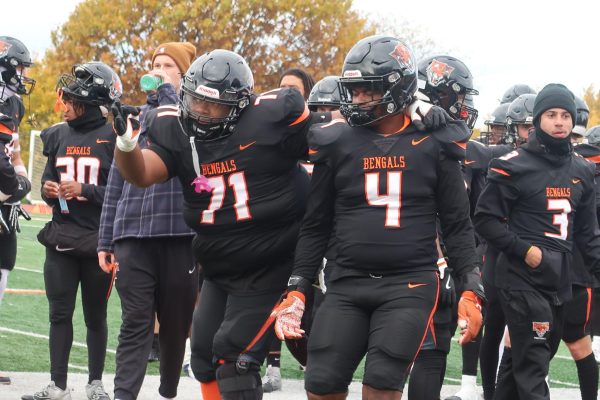Professor depicts tattoo perceptions across cultures
Professor Proctor’s body modifications serve as both self expression and cultural tradition.
Tattoos don’t lose personal meaning, even after traveling over 7,000 miles.
From Delhi, India, to Buffalo, Lavanya Proctor, a lecturer in the anthropology department, found herself living in a new city and a new job at SUNY Buffalo State.
Proctor has been teaching at Buffalo State for two years and has two tattoos.
“Tattoos go with your image,” Proctor said. “What are you trying to say about yourself? Mine say there’s something about me that’s a little off the beaten track.”
Proctor grew up in the upper middle class area of Delhi. Since she was very young, she knew that she wanted to teach, and ended up pursuing that career in college.
In 2004, one of her professors suggested that she apply to attend college in Iowa. She got funding, and went to Iowa, 7,500 miles away.
She was at a new school in a new country and was feeling independent.
Along with her lifelong dreams of becoming a teacher, she also had always wanted a tattoo.
“I wanted to do it for so long,” Proctor said.
She would beg her mother, but her mother would say “no,” explaining that it really upset her.
Upon living on her own, Proctor decided to go look at a tattoo parlor in Iowa. She browsed, and went home to think about the decision for a whole year.
“That stuff stays with you, and it’s hard to undo,” Proctor said. “It’s a commitment, that’s why I thought about it for a year.”
In the summer of 2005, Proctor got her first tattoo — a Sanskrit quote that reads, “Truth, Knowledge, Peace.” She said the tattooed message means something to her culturally.
That summer, Proctor also returned, tattoo and all, to India’s capital. Her mother went “ballistic,” and was mad.
Though her mother “hated it,” Proctor said, “it was done.”
Ironically, Proctor got another tattoo soon after. The tattoo, located on her right arm, is a She-devil.
Despite her mother’s original reaction, Proctor said, “My mom’s such a sweetheart. She’s been great about it.”
Proctor believes it’s fun to express yourself through ink.
“My tattoos are an element of irreverence,” she said. “They remind me to be less hung up on how I should be behaving.”
After the summer in India, Proctor returned to Iowa, where she lived until 2010 before moving to Buffalo with her husband, Daniel Proctor. He was hired as an assistant professor in the anthropology department, and Lavanya was then hired as a lecturer in the same department.
“I like Buffalo State,” Proctor said. “It’s growing on me. I’m getting used to new people and I feel more settled this year. It’s been good.”
From India to Buffalo, Proctor said that there are some differences between cultural perceptions of tattoos and body modifications.
Along with her tattoos, Proctor also has her ears pierced, as well as a nose piercing, which she got done when she was 18 years old and considers it to be “very traditional, and very Indian.”
“You can look at someone with piercings and think it’s ugly, but it’s a beautiful thing, and a mode of self expression,” she said, noting that tattoos may help one to identify with a group. In India, Proctor said that tattoos are traditional. She said they used to not be seen in the middle and upper middle classes, but then young people started to get them.
“There’s an increased social acceptance of tattoos,” Proctor said. “They’re less of a class marker, and we’re less judgmental.”
She also said that a similar trend happened in the United States. Tattoos used to be viewed negatively here, but then they became more “mainstream.” Even increasing amounts of professional people have them nowadays.
Proctor said that tattoos used to be known as military tattoos, prison tattoos or gang tattoos, but now they’re symbols that convey something about a person’s identity.
“Tattoos are for yourself,” she said. “They display something, but the satisfaction is for yourself.”
She said that her tattoos and piercings are “the part of me that doesn’t want to be boring.”
“You get caught up in being an adult,” Proctor said. “My tattoos remind me to relax, to have fun, to remember what’s important as an educator, and as a lifelong student.”
Referring to her Sanskrit tattoo, Proctor said that the words remind her what it is that she should hold important, and her She-devil tattoo reminds her not to get caught up in life.
Both tattoos have equal meaning to her — balance.
Email: young.record@live.com
Twitter: LiveWithColly


